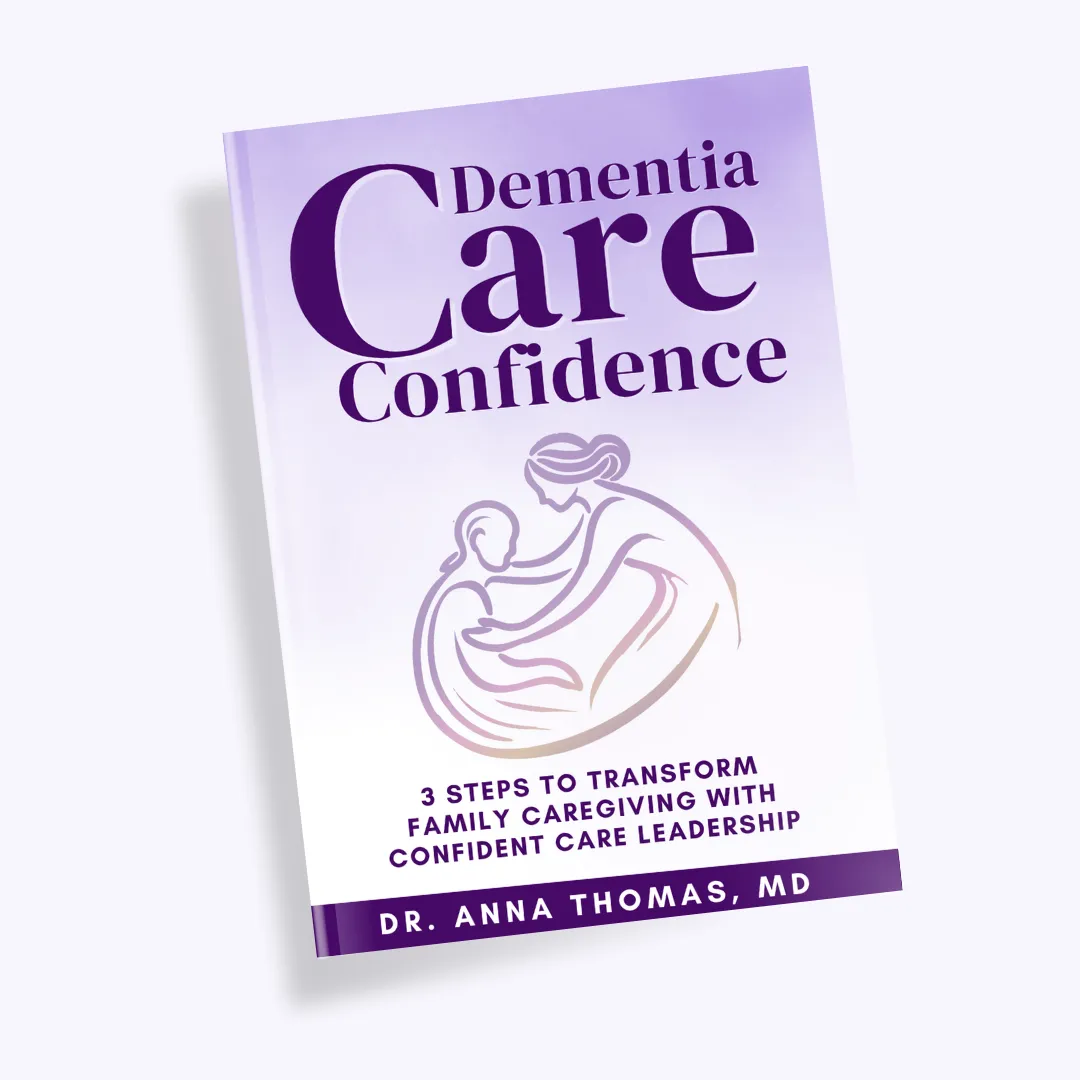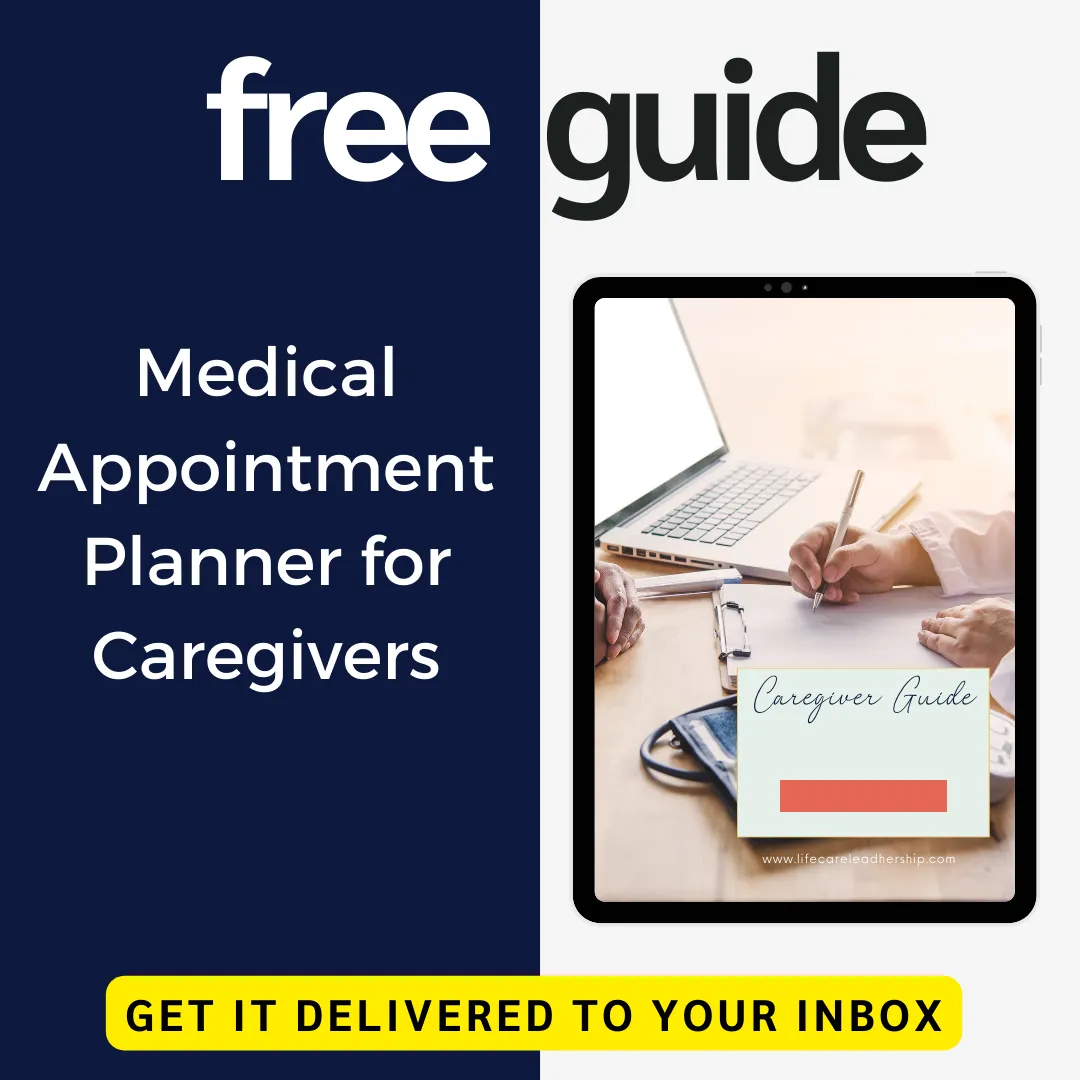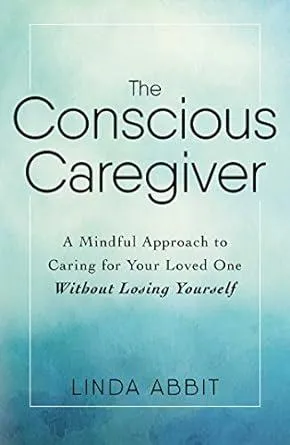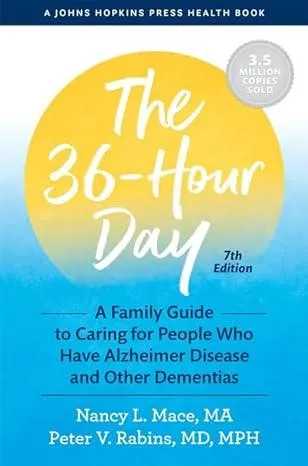Education & Resources
Resources for Caregivers
Our mission is to empower women caregivers to thrive while managing their personal and professional responsibilities.

Free Resources
LifeCare LeadHership Newsletter
Weekly Newsletter on Life, Career, Caregiving & Balance for Women Who Care for a Loved One With Dementia
Caregiver Support Guides (Click Image)
Books Published By Dr. Thomas

Dementia Care Confidence - Click Here To Get Your Copy
Dementia Care Confidence: 3 Steps to Transform Family Caregiving with Confident Care Leadership
is your essential companion as you care for a loved one with dementia. Specifically designed for female caregivers, this book offers practical support to help you manage the emotional and logistical challenges of dementia caregiving with renewed confidence.
Articles & Resources

Where Can Dementia Caregivers Find Support Groups
As a dementia caregiver, you know how overwhelming and isolating the journey can be. Caring for a loved one with dementia often feels like navigating uncharted waters, leaving you exhausted, uncertain, and alone. But you don't have to face this challenge by yourself. In this post, we'll explore where you can find support groups that connect you with others who understand what you're going through—offering the companionship, advice, and encouragement you need to feel less alone and more empowered in your caregiving role.
Benefits of Joining a Support Group:
Emotional Support: Support groups offer a valuable space to connect with others who truly understand the emotional weight of caregiving. Sharing your experiences with people who face similar challenges can provide significant relief from feelings of isolation and loneliness. The empathy and encouragement you receive from group members can help validate your experiences and uplift your spirits during tough times.
Practical Advice: Engaging with a support group allows you to tap into a wealth of practical advice and strategies from those who have navigated similar caregiving situations. Group members often share valuable tips, effective coping techniques, and solutions to common problems, helping you manage daily caregiving tasks more efficiently. This shared knowledge can make a significant difference in how you approach and handle caregiving responsibilities.
Resource Connection: Support groups can be a vital resource for discovering additional tools and services that might not be immediately obvious. Members often share information about local services, financial assistance programs, and educational resources that can enhance your caregiving experience. By connecting with others in the group, you can access a broader support network and find resources that help you and your loved one.
Where to Find a Support Group
Alzheimer's Association
The Alzheimer's Association is a fantastic resource for dementia caregivers. They offer a variety of support groups, both in-person and online, that are tailored specifically to those caring for someone with dementia. These groups provide a safe space to share experiences, ask questions, and find comfort in knowing you're not alone. You can easily find a local or virtual support group through their Community Resource Finder.Area Agencies on Aging (AAA)
Your local Area Agency on Aging (AAA) is a hidden gem when it comes to finding support. These agencies are dedicated to helping older adults and their caregivers, often providing access to local support groups and other caregiving resources. They can connect you with people in your community who are facing similar challenges, offering a place to share your experiences and get valuable advice. Find your local AAA through the Eldercare Locator.Hospitals and Clinics
Many hospitals and clinics offer support groups specifically for dementia caregivers. These groups are often led by healthcare professionals who can provide insights into the medical aspects of dementia care, as well as emotional support. Check with your loved one’s healthcare provider to see if they offer any caregiver support programs or can recommend a group in your area.Community Centers and Senior Centers
Local community centers and senior centers are great places to find support groups for caregivers. These centers often host regular meetings where caregivers can come together to share their stories, learn new coping strategies, and build friendships with others who understand the caregiving journey. Many also offer educational programs and workshops that can help you feel more confident in your role.Online Platforms
If getting out to a physical support group is challenging, online platforms like Facebook and Reddit have vibrant communities where caregivers can connect. These virtual support groups allow you to share your experiences, ask for advice, and receive encouragement from others at any time of the day or night. Joining an online community can be a lifesaver when you need immediate support. LifeCare LeadHership Has a private support group on facebook as well.
3 Things to Consider Before Joining a Support Group
Group Focus and Goals: Understand the group’s focus to ensure it aligns with your specific needs. Some groups may cater to caregivers of individuals with specific types of dementia or offer general caregiving support. Make sure the group’s goals and discussions match what you're looking for.
Meeting Format and Frequency: Check how often the group meets and whether the meetings are in-person, online, or a hybrid of both. This will help you determine if the format fits into your schedule and preferences. Online groups offer flexibility, while in-person groups may provide more direct personal interaction.
Group Dynamics and Leadership: Learn about the group's leadership and dynamics. Understanding who facilitates the group and their qualifications can give you an idea of the group's professionalism and the type of support you can expect. It’s also helpful to know how the group manages discussions and supports members.
Remember, you don’t have to navigate this path alone. Join our Dementia Care Confidence Support Group on Facebook today! Click here to Learn more
Recommended Books and Articles
The Conscious Caregiver: A Mindful Approach to Caring for Your Loved One Without Losing Yourself
Linda Abbit, founder of Tender Loving Eldercare
and a veteran of the caregiving industry, shares her advice on taking care of an older parent or loved one and how to handle everything that goes along with this dramatic life change.
Amazon link
The 36-Hour Day: A Family Guide to Caring for People Who Have Alzheimer Disease and Other Dementias
The 36-Hour Day" is a comprehensive guide for caregivers of individuals with dementia, offering authoritative and compassionate advice based on 40 years of experience. This new edition includes updated content on topics like home care aides, useful apps, and preventative therapies, with practical advice on managing dementia from early to late stages, along with tips for avoiding caregiver burnout and accessing additional support
Amazon link
Copyright LifeCare LeadHership ©2022 All rights reserved






